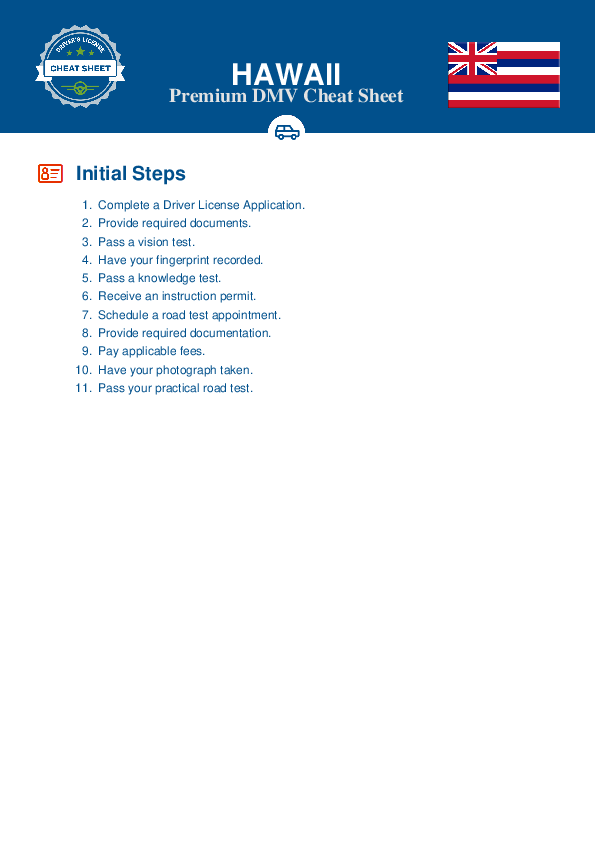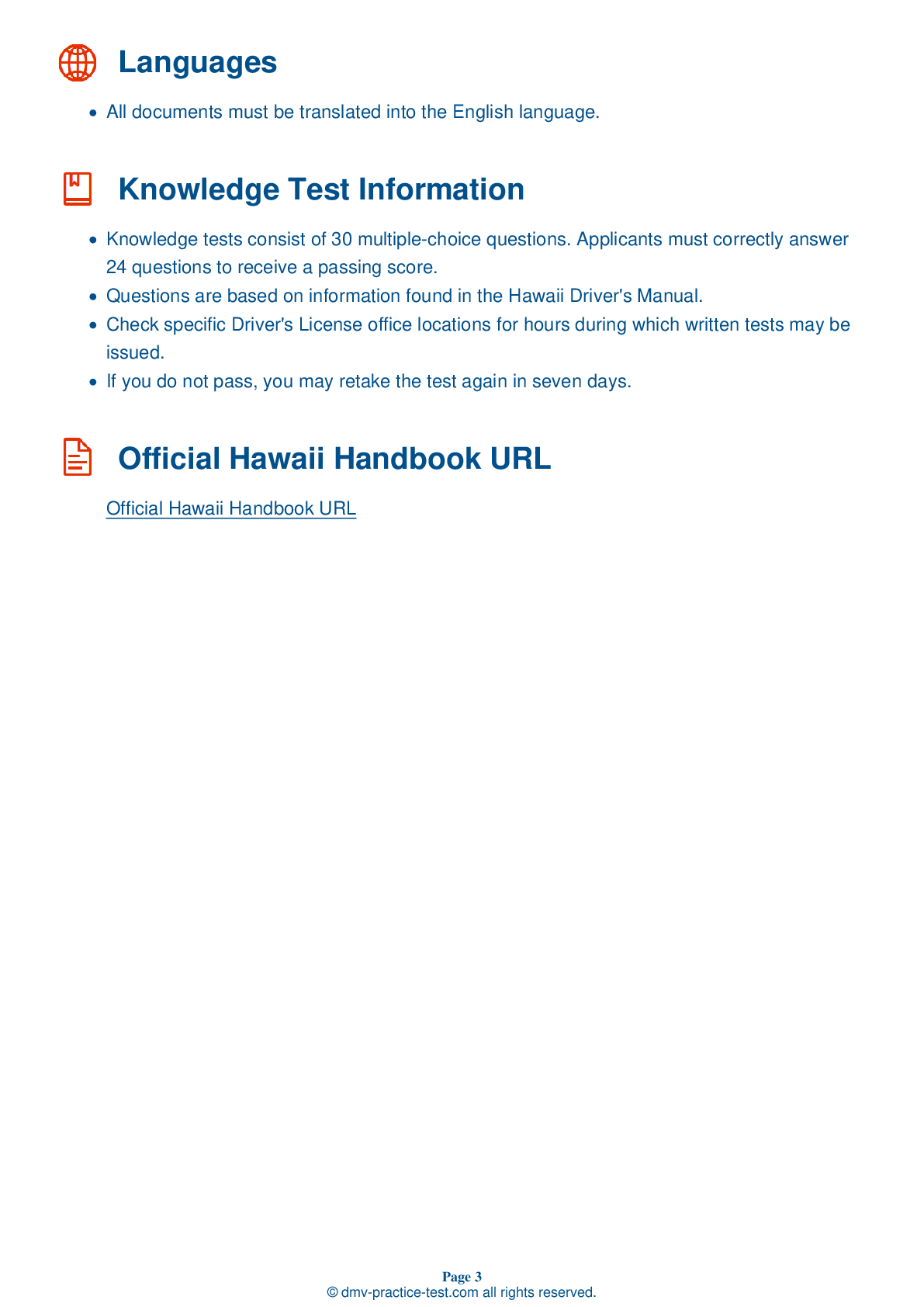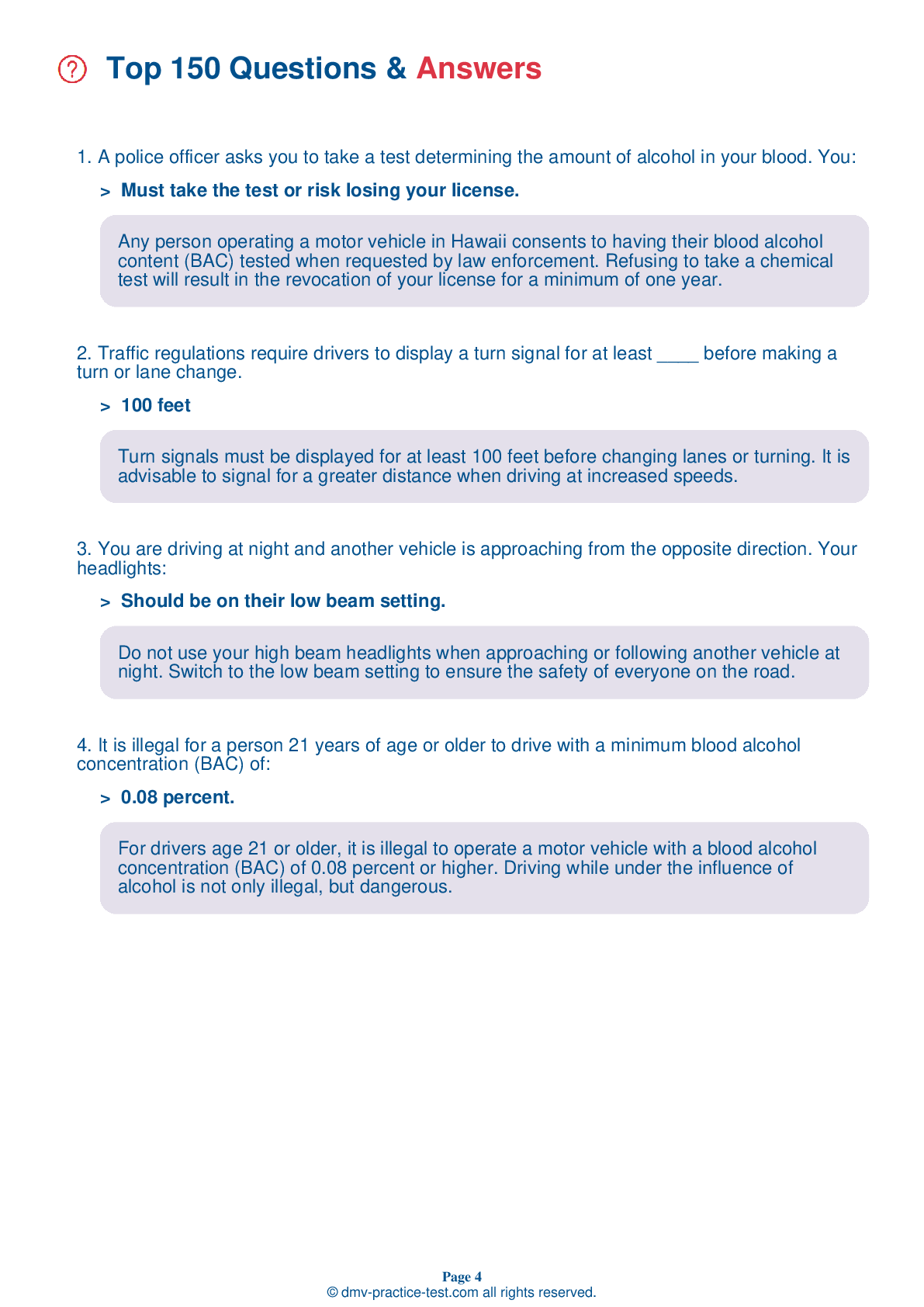FREE Hawaii DMV Practice Test | Driving License Permit test Hawaii 2026 #8 Page 5 of 5
This set of practise tests for the Hawaii DMV has been updated for January 2026. It includes questions based on the most important traffic signs and legislation for 2026 from the Hawaii Driver Handbook. To study for the DMV driving permit test and driver's licence exam, use actual questions that are very similar (often identical!) to the DMV driving permit test and driver's licence exam.
Each question on the practise exam has a tip and explanation to help you recall the ideas. Questions about traffic rules, traffic signs, and driving statutes, as well as information from the Driver Handbook, will be included in the written portion of the official DMV test.
You must properly answer 24 of the 30 questions to receive a passing mark. To help you prepare for your Hawaii instruction permit or driver's licence, take our DMV practise test.
The DMV exam is offered in a variety of languages.
Using any form of testing help will result in an automatic fail, and the DMV may take further action against your driver's licence, so avoid it.
25 . A red traffic signal light means that you must:
A red traffic light means that you must stop before entering the intersection. You must at any stop line and before entering any crosswalk.
26 . If an approaching train is near enough or going fast enough to be a danger, you must:
You should look and listen for trains before crossing any railroad tracks. If an approaching train is near enough or going fast enough to be a danger, you cannot go across the tracks. This is true even if they have no signals or the signals are not working.
27 . Emergency vehicles:
You must yield the right-of-way to police cars, fire engines, ambulances, or any other emergency vehicles using a siren or air horn and a red or blue flashing light. Follow any instructions given over the emergency vehicles' loudspeakers. Emergency vehicles often follow each other so you should proceed only when you are certain the way is clear.
28 . A police officer asks you to take a test determining the amount of alcohol in your blood. You:
Any person operating a motor vehicle in Hawaii consents to having their blood alcohol content (BAC) tested when requested by law enforcement. Refusing to take a chemical test will result in the revocation of your license for a minimum of one year.
29 . Crossbuck signs indicate:
Crossbuck signs tell drivers to yield to trains at a railroad crossing. Drivers should not try to outdrive a train.
30 . You are driving at night and another vehicle is approaching from the opposite direction. Your headlights:
Do not use your high beam headlights when approaching or following another vehicle at night. Switch to the low beam setting to ensure the safety of everyone on the road.
See the exact questions that will be on the 2026 Hawaii DMV exam.
99.2% of people who use the cheat sheet pass the FIRST TIME
LT gives us an insight on how the cheat sheet provided her with all the study questions she needed before taking her test.
Joe initially studied with the handbook and failed his test, he eventually found us online, studied and pass his test the first time around.
2026 Hawaii | Frequently Asked Questions
1. Be at least 15 1/2 years old.
2. Complete a state-approved driver's education course and receive a Certificate of Completion.
3. Visit the local DMV with a parent or guardian.
4. Bring necessary documents: proof of identity, proof of legal presence, social security number, and two proofs of Hawaii residency.
5. Pass the written knowledge test.
6. Pay the required fee.



